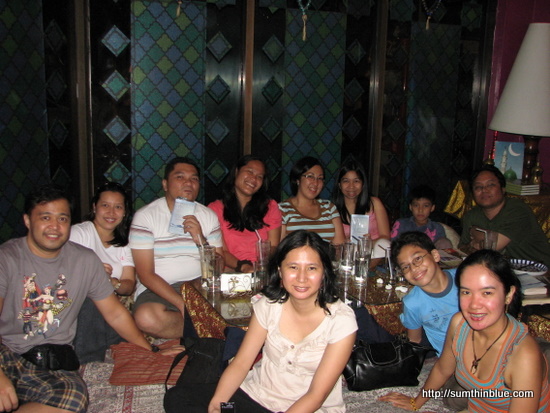I don’t normally read science fiction, but I always take FFP’s monthly book discussions as a challenge when I’m not comfortable with the assigned genre or author. Because our book club grants the moderator the power over the monthly assignment, I’ve been challenged a fair deal in past discussions, as some of the book assignments are far from my comfort zone.
I think, though, that Ursula Le Guin’s The Left Hand of Darkness is one of the book assignments I’ve dreaded the most — I’m just not into unpronounceable names and anything that needs a map! Le Guin’s introductory section, where she explains what science fiction is about (not merely “extrapolation,” but a “metaphor”), is actually helpful. I also like her statement (cautionary warning, perhaps?) on novels:
“In reading a novel, any novel, we have to know perfectly well that the whole thing is nonsense, and then, while reading, believe every word of it. Finally, when we’re done with it, we may find—if it’s a good novel—that we’re a bit different from what we were before we read it, that we have been changed a little, as if by having met a new face, crossed a street we never crossed before. But it’s very hard to say just what we learned, how we were changed.”
At last Saturday’s book discussion at a wonderful restaurant named Ziggurat (aptly located at the corner of Tigris and Euphrates sts. in Makati!), our moderator, Sabin, also discussed with us the history of the SF genre, which has its formal roots in classic works such as Mary Shelley’s Frankenstein, and the works 0f Jules Verne and HG Wells, and the evolution of sci fi into cult fiction, various phases (post-apocalyptic, psychedelia, cyberpunk), and transition into mainstream literature.
In summary, The Left Hand of Darkness is a story set on the Planet Winter, one of many planets in the Hainish universe (which includes the Earth, known as “Terra”). The Ekumen of Worlds, the council of worlds in this universe, has sent an envoy named Genly Ai to Winter (known to its inhabitants as “Gethen”) to extend membership to the Gethenians.
The novel mainly explores the Gethenian culture — their androgyny, social prestige (“shifgrethor”), politics, religion, language, and other workings of society. Genly Ai initially finds himself bewildered by the Gethenians, but as he gets to know them, he begins to see they’re not so difficult to understand after all.
The story is more complicated than that, but I don’t think I can explain further — reading it was challenging enough! I even brought it along on a beach trip to make it easier for me to read straight through it! But after the introduction got my hopes up that I wouldn’t have so much difficulty reading the novel, I started in on the opening chapter, and felt I was plunged into a bucket of cold water!
Apparently I wasn’t the only one prompted to take down notes, hahaha:
Halfway through the novel, though, I begin to acclimatize, and after reading the first half on and off for five days, I read the last hundred pages in roughly one sitting.
What was surprising to me was how much I found to like about the novel, particularly LeGuin’s writing.
I liked a bunch of passages from the novel (and the ideas behind them), like this one, on patriotism:
“No, I don’t mean love, when I say patriotism. I mean fear. The fear of the other. And its expressions are political, not poetical: love, hate, rivalry, agression.”
And this one on progress:
“Gethenians could make their vehicles go faster, but they do not. If asked why not, they answer ‘Why?’ Like asking Terrans why all our vehicles must go so fast; we answer, ‘Why not?’ No disputing tastes. Terrans tend to feel they’ve got to get ahead, make progress. The people of Winter feel that progress is less important than presence.”
On life:
“The only thing that makes life possible is permanent, intolerable uncertainty: not knowing what comes next.”
And on love:
“A profound love between two people involves, after all, the power and chance of doing profound hurt.”
There is also a nice verse that summarizes the idea behind the book:
Light is the left hand of darkness
and darkness the right hand of light.
Two are one, life and death, lying
together like lovers in kemmer,
like hands joined together,
like the end and the way.
And by the end of the book, I was surprised to find that I actually — *gasp* — liked it!

The discussion went swimmingly too — we had a stimulating discussion about androgyny, the kemmer cycle (lol, go look it up!), Taoism, and war. The topics covered by the book made for a lot of opinions within the group, even for those who weren’t able to finish the novel (note to absent Flippers: you should have gone for the food!).
We capped the day with a hearty dinner at the Filling Station, where a discussion of sorts continued over diner-style food and two pitchers of margarita. Yum!

Next month: 12-year old Flipper Paolo moderates the discussion on comics and graphic novels!
***
The Left Hand of Darkness, mass market paperback, 4/5 stars
Book #75 for 2010
L for the A-Z Challenge
[amazonify]::omakase::300:250[/amazonify]




Great write up, Blooey.
You write so well!
Thank you, Fredda!
Glad you liked it. :) I haven’t finished reading this one though. The one I read was “The Lathe of Heaven”. I’m a Le Guin fan because her sci-fi works (or should I say speculative fiction?) are less about the science and more about the people and the ideas. Which, I suppose, is what good books are about. :)
I kept seeing Lathe of Heaven when I was looking for a copy of this book. Not really a big specfic fan, but I’m slowly acquiring the taste for it… Maybe I’ll read another LeGuin in the future :) Thanks for dropping by!
I usually like reading across a variety of genres but I must admit I am not comfortable tackling science fiction. But like your above comment, I may develop a taste for it if I decide to tackle a good sample from this genre.
The book you’ve just reviewed seems intriguing in terms of the author’s writing. I do so like the first quote in this post.
Hi Jo! Haha, I had no choice but to read this because it’s a book discussion selection. A couple of years ago we read Brave New World by Aldous Huxley and I enjoyed it too. Science fiction still isn’t my cup of tea, but I’m glad the FFP discussions allow me to explore other genres I don’t normally read :)
Wow! My notes made a cameo in this post. Thanks Bloo! Pero mas OC-OC ka pa rin sa akin. You filled a notebook. :P
@Mike- I know! That’s just the first page. I filled several more!